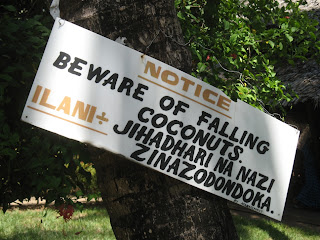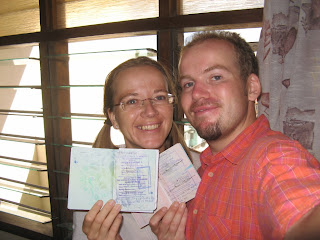I cross the road to the big, big building of TGNP (Tanzania Gender Network Programme), where many companies and organisations, including ICD, rent their offices...
Our small office is divided into even smaller cubicles with the help of thin wooden walls, my cubicle is the first on the right. The temperature in there, as you can imagine, is just as high as outside, and without fans working full power for the whole day it is impossible to breathe. No sunlight reaches me, which depending on your view-point can be good or bad.
But, the cubicle is mine only and I have a really good laptop to work on, the biggest of all luxuries!





























